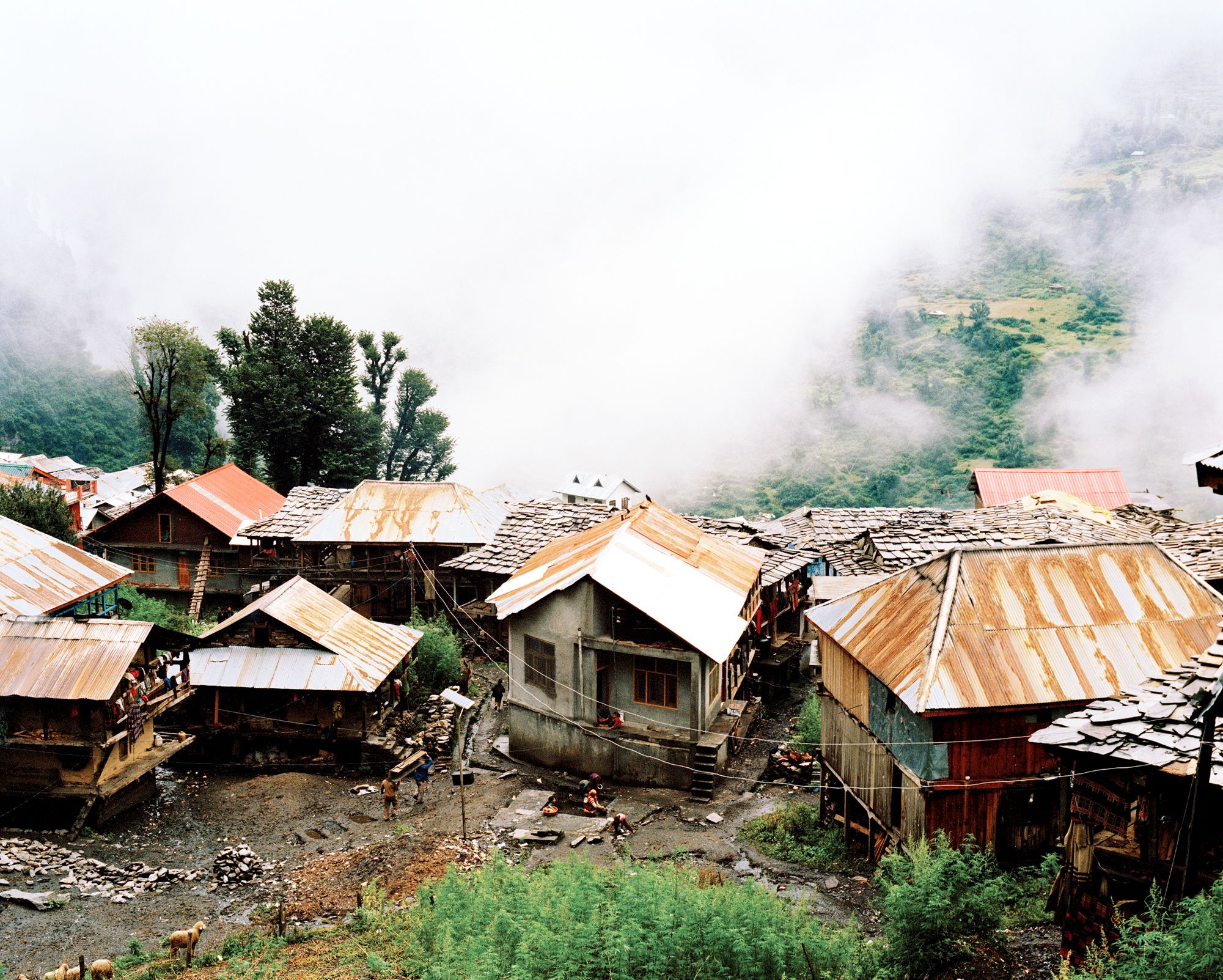
This is a journey to Malana, an ancient, solitary village tucked away in the upper reaches of the Himalayas, in Parvati valley of Himachal Pradesh, India. To reach Malana, my Indian crew and I trekked across narrow, precipitous trails with breathtaking views. My objective was to photograph the Shaun festival, held every August 15th. Only to discover I was documenting an important spiritual pilgrimage where Malanese people connect with impure outsiders, if only in union and spirit once per year to worship the same God, Jamadagni Rishi. Malana is a rich storehouse of fables, myths and legends.









The Shaun festival starts with some locals conducting formal duties by dressing up in their traditional attire of clothing called ‘pattu’ which is made from sheep wool. The priest in the village known as ‘Pujari’ brings a tree to the middle of the ground in front of the temple of Jamdagni Rishi. Pujari speaks his mantras and sets a tree alight. Locals surround the burning fire playing instruments, while performing their local dance called ‘Nati.’ A sheep is sacrificed in front of the mounting crowd of which it’s soul and blood is then offered to Jamadagni Rishi, which is like a cleansing process. The men in the village drink alcohol and smoke Malana cream for the duration of the festival, dance and play music into the night, and the women are allowed to watch.
Malana is steeped in history and its people are said to be descendants of Alexander the Great’s army. They believe themselves to be pure Aryan. The language spoken ‘Kanashi’ is a mixture of Sanskrit and Tibetan dialects and as a result the people have their own language that only people there understand, the language is said to be left by the devil as a memento.
The women in the village are courageous, strong and do most of the work, such as chop wood and do the housework. Leela who was heavily pregnant with her 7th child, told me her husband is allowed to be present at birth but afterwards only women are able to visit after a 15 day period of isolation inside a tent. The newborn child must undergo a brutal test to become a new member of the village, on about the 2nd full moon after the birth, whom will be showered in ice cold water at night, directly under the moon. This is particularly difficult for a baby and many will not make it and die, they will then be buried. If they do make it then they are declared as strong enough for the climate and are celebrated by being given life to live there. The only people that belong to the Malana tribe are survivors of this newborn custom.